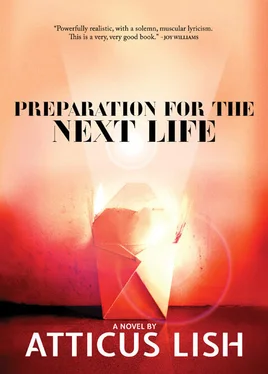In His Name, the Name of the Prophet, and the clan of the Prophet, that which is open, that which is hidden, praise be to God. For surely, there is Good versus Evil. Therefore, command what is Right and forbid Evil (praise be to God). Science in the mouth of the Unfaithful One (created by fire, the Uncreated One) is deceiving. He who uses false names, by their numbers will he be exposed. True numerology is proof unto me, as I am proof unto Him (the Supreme). Ibn Al-Nawawi, third ayat. Therefore, the Science of Righteousness is used to learn real Truth (all praise). But when the sawat is subtracted from daily life, zero minus one computes to negative infinity and all existence is banished. A believer who is faithful (blessings be upon you) and who keeps the day will live three hundred seventy-five years on earth and ten thousand eight hundred years in Heaven. (Praise God, in the words of the Faithful One) his reward will I make for him out of gold. With the birth of Knowledge, Life is born. With the birth of Ignorance, Death is born, affecting every living thing, even things that are inanimate (cannot live hereafter). Fifth verse, ayat 37. Thus Life is given or taken according to Number Theory (Number Science, all blessings be unto the Imam of Time) discovered over seven hundred years in the past before modern computers. The Ninety-nine Names of Him Who is the Most Highest were computed before modern methods. Relief will be granted at a future time, whose number has been computed as three million.
When he finished speaking, the mullah turned around and the singing began again, the singer rapidly enunciating verses that went on and on for many minutes, his voice quavering at difficult notes, pronouncing hundreds upon hundreds of words deftly and rapidly without tripping up. Then the mullah took control again and called the cadence as they prayed. God is great! a woman wailed, as if she had been hypnotized. They raised their hands up to their faces, seemed to read them like a book, flung them down and bowed. The entire building dropped to its knees and the women put their foreheads on the carpet in front of the television. They pressed their foreheads on their prayer stones. Zou Lei did this to.
When she raised her head between bows, she noticed a giant silver statue of a hand high up on the wall. It was garlanded with plastic flowers and it had an eye in the center of the palm.
When the praying was over, the women turned to each other and touched each other’s hands. A woman took Zou Lei’s hand and trapped it like a fish between her hands and slid her hands off. Then they touched their hearts. They gestured at their mouths with their dark fingers, inviting her to eat with them.
They unrolled a strip of green wood-patterned vinyl on the floor and someone passed out plastic plates and Dixie cups of water, no cutlery. The vinyl strip represented their table. Sit, they told Zou Lei. She sat cross-legged, her jeans still damp from sweating. There was an aluminum baking pan full of dal curry. They tore their flatbread into pieces and used it to pinch up the lentils.
While they were eating, a man in a shalwar kameez entered the basement carrying another aluminum baking pan and the women started putting money into it, filling it with dollars.
I don’t have money, Zou Lei lied.
It’s okay, the women told her. More food?
One of them tore up a piece of bread for her and put the pieces on her plate. They watched her guzzling water. Zou Lei wiped the curry off her plate and ate it off her fingers. Good, she said. They refilled her water cup.
Thank you.
No, she was told. Bimsallah.
Bimsallah, she repeated.
Good, they said.
They wanted to know what she was. What are you, Nepal woman?
After she had eaten, she went upstairs with the others to find her shoes again. The mullah had been told about her. She saw him through the doorway, regarding her and nodding as a man pointed her out. The man wore spectacles and a dress shirt through which the white shadow of his undershirt was visible. When she was outside the man approached her, carrying a Koran.
May I ask you something? Why did you come here with your arms and legs uncovered?
Someone tell me to come here.
I see. You want to learn about our faith. Do you know Islam? It is the true faith. The true one. We teach one God, that’s Allah. Maybe you feel much better now after the prayers. Maybe you feel you have refreshment. Don’t you feel that way? And he let out a laugh like a hotelier greeting wealthy guests.
So! It’s new for you, but it’s very important for you. But, something you should know, in our faith, you must cover your arms, legs, and the head. Then you can learn with us. I make some book for you and you will study. Then I will convert you. Do you have a cell phone? You can give me your number.
I don’t understand nothing the imam said, Zou Lei told him.
It’s different language for you, it’s very hard, I know, but it’s not a problem. I will make book for you in English. I will personally help you to guide you to God.
Okay, okay, she said, but she didn’t give him her number. Her dried sweat had left licks of salt on her temples, down her bare thighs. Her hair was stiff and she pushed it back with her hand, and took another bite of the flatbread Tesha the butcher had given her.
My mother was Muslim people, she said, chewing. I know about God, but it’s too many rules.
No, no, no. You are wrong, he said. No, no, no. You make a big mistake to say that. Let me tell you something about God. He is like the shade of a tree on a hot day. How can I say? It is like you are burning in the sun and you feel very uncomfortable. You are thirsty and you would like some good things to drink. All you have to do is open this door and go in where it is cool and refreshing. That is God.
But, he said, you cannot have these beautiful things if you lead a bad life, if you are sinning, doing what you want. Of course you must live properly and obey the law. He pointed at the bilingual Arabic and English sign over the mosque’s doorway, which he read aloud for her. It said Preparation For The Next Life.
He studied her reaction. She squinted at him, creasing the fine white lines by her eyes that came from working in the sun starting when she was perhaps six years old.
I have a long way home, she said and started leaving.
Of course, you must go, he said and patted his Koran. Don’t be late for your husband.
As she left, he told her to come that Sunday, if she could, at two o’clock, because there would be another meal, and he would be here.
The kids on the block were still playing in wet t-shirts, running through a fire hydrant gushing in the street. A car went by and the sun spot in the windshield left a direct impression on her eye, a shape when she blinked. She had finished her bread and her stomach felt heavy and her legs had stiffened up. She did not want to run anymore, but it was a long way back and there was no bus she knew of.
A kid with a big voice tried to get her in a game with his friends.
I have to go home long way.
How far you go? the boy asked, attempting to run along with her.
Twenty mile.
He fell back behind her, gave up running.
You go that far every day? he called.
Goodbye, she waved.
He was about eleven, she had made a great impression on him, and he couldn’t stop following her with his big eyes.
Fight the power! he raised his high voice and yelled down the block after her.
IT WAS TWO-SOMETHING IN the morning and Skinner was on the 7 train. When the train braked, his legs slid sideways on the seat. His jeans were hanging off his hips and the cuffs were under the heels of his boots. His empty drink can rolled out of his hands and across the floor of the car. It came to rest beneath the sneaker of a Mexican who trapped it like a soccer ball and kicked it away again. People were sleeping and reading the bible. The train rocked on, the doors banged open, and the heat came in from the outdoor platforms, the station names slashed with graffiti. Skinner woke up having to vomit. He got off the train, fell through the turnstile, and threw up on the landing of the tall staircase. Then he used the handrail to climb down to the street.
Читать дальше












